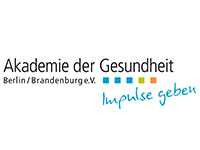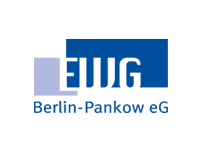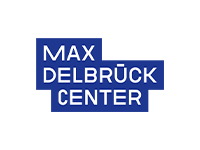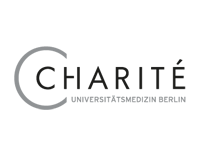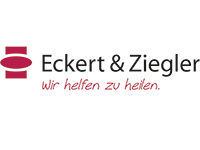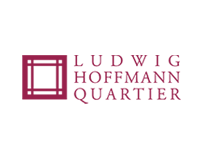Your selection
Research, Innovation, Patient care, Education / 24.04.2025
Max Delbrück Center to host Helmholtz Drug Discovery meeting
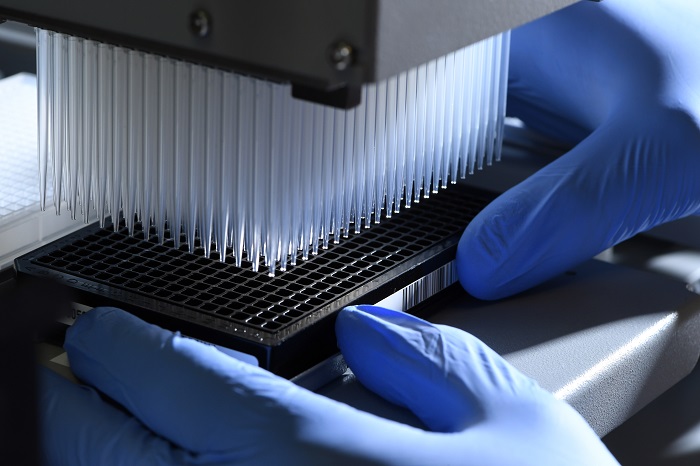
Top scientists and companies will meet in Berlin-Buch for the 2025 Helmholtz Drug Discovery Conference from April 28-30 to discuss RNA drugs, PROTACs, AI in drug discovery, and chemoproteomics and to form new collaborations.
This year, the Max Delbrück Center will host the international Helmholtz Drug Discovery Conference (HDDC) in Berlin-Buch from April 28-30. The meeting will feature an exciting list of speakers discussing advances in new kinds of therapeutics such as RNA, both as a drug and a target, and Proteolysis Targeting Chimeras (PROTACs) – a promising class of drugs that are more effective than traditional small molecules. The three-day conference will also assemble a panel of experts discussing the application of artificial intelligence to identify novel drug candidates and advances in chemoproteomics – a more accurate and sophisticated method of developing new therapeutics.
The biannual HDDC is organized by the Drug Research Initiative, a consortium of all Helmholtz Centers participating in the Helmholtz Health research area. “The Helmholtz Drug Discovery Conference reflects our commitment to accelerating the development of innovative therapeutics that address some of the most pressing health challenges of our time,” says Professor Maike Sander, Vice President of Helmholtz Health and Scientific Director of Max Delbrück Center. “By bringing together leading minds from academia, clinical research, and industry, we are creating a dynamic environment for collaboration that can truly drive medical breakthroughs. I am particularly excited to see how emerging technologies – like AI and chemoproteomics – are shaping the future of drug discovery.”
“The bulk of the talks will focus on RNA strategies,” says Professor Michael Bader, Head of the Molecular Biology of Peptide Hormones lab at the Max Delbrück Center and co-organizer of the conference. “It’s a topic that hasn’t been discussed much in previous meetings but is becoming increasingly important,” he adds.
For example, Professor Thomas Thum, Head of the Institute of Molecular and Translational Therapy Strategies at Hannover Medical School, will discuss how he has used ultra-thin sections of human cardiac tissue to study miR-21 – a microRNA (miRNA) that regulates inflammatory and fibrotic genes that trigger stiffening of heart muscle tissue. His research team has developed an antisense RNA molecule that acts as a mirror image, binding to the microRNA and switching it off. The molecule can partially reverse the stiffening, making heart tissue more elastic.
Other speakers include doctoral student Isabell Drath from the University of Veterinary Medicine in Hannover, who will present research on a new nanoparticle-based nose-to-brain delivery of small interfering RNA (siRNA) or miRNA to treat Parkinson’s disease. And Professor Michelle Hastings from the University of Michigan Medical School will explain how she and her team have developed splice-switching antisense oligonucleotides – short sequences of nucleic acids that pair to an RNA target and change how it is translated into proteins – to treat Batten disease, a fatal genetic disorder.
Workshop, industry reps to give “Flash Talks”
In addition to scientific talks and discussions, this year’s HDDC will also feature a workshop on the drug screening platform EU-OPENSCREEN, and talks by start-ups and established companies. EU-OPENSCREEN is a non-profit European Research Infrastructure Consortium for chemical biology and early drug discovery, explains Dr. Edgar Specker, Head of Compound Management at the Leibniz-Forschungsinstitut für Molekulare Pharmakologie (FMP) and a co-organizer of the conference. EU-OPENSCREEN’s central office and compound management laboratory are located on the research campus in Berlin-Buch. It provides open access to cutting-edge compound screening, medicinal chemistry, chemoproteomics, and spatial MS-based omics platforms to researchers around the world.
“We wanted to make this meeting a forum for more than just exchange among scientists,” says Bader, “but also a place where companies and start-ups working in these fields could introduce themselves and form collaborations with other researchers.” During the start-up session on Tuesday afternoon, several companies will present their work including Absea Biotechnology and FyoniBio, which were spun-off by Max Delbrück researchers and are located at Campus Buch. High-Tech Gründerfonds, a public-private venture capital investment firm based in Bonn, will also be participating in the discussions.
Developing novel drugs, getting industry involved
The invited companies are engaged in developing RNA based and other types of therapeutics, including PROTACS – which work differently than traditional small molecule drugs by actively degrading disease-causing proteins rather than simply inhibiting them and are consequently more effective. Chemoproteomics, which combines the study of all proteins in cells with technologies such as mass spectrometry to locate and understand exactly where drugs bind inside cells, will also be discussed by both researchers and companies.
“Previous conferences have consistently served as dynamic platforms for exchange among researchers and industry. HDDC2025 will follow this tradition,” says Bader. “We aim to help companies gather new ideas for commercialization and inspire researchers to spin off companies to transform their research findings into real benefits for patients.”
International Helmholtz Drug Discovery Conference
When?
April 28, 2025, 12:00PM – April 30, 2025, 1:30PM
Where?
Max Delbrück Communications Center (MDC.C), Robert-Rössle-Str. 10, 13125 Berlin
Further information
Overview News
News Buch Berlin
Similar kinases play distinct roles in the brain
Researchers at the Max Delbrück Center show that two closely related enzymes, MNK1 and MNK2, act on the brain to regulate different behaviors. Their findings, published in “Molecular Psychiatry,” coul...
more ...New material boosts MRI image quality
MRI scans often struggle to capture clear images of deep or delicate tissues. Researchers at the Max Delbrück Center now report in “Advanced Materials” a new lightweight antenna that boosts image qual...
more ...Leif Si-Hun Ludwig awarded professorship
Leif Si-Hun Ludwig has been awarded a prestigious Heisenberg professorship in stem cell dynamics and mitochondrial genomics by the the Berlin Institute of Health at Charité, a position funded by the G...
more ...Events Buch Berlin
18.03.2026, 08:30
vocatium Berlin focus 2026: Fachmesse für Ausbildung+Studium
Entdecke berufliche Möglichkeiten, informiere dich und sprich mit Expert:innen über Einstieg, Voraussetzungen und Bewerbung.
more ...20.03.2026, 08:45
Einladung: UniStem Day für Berliner Schülerinnen und Schüler aus Biokursen
Das German Stem Cell Network (GSCN) lädt die an Biologie interessierten Berliner Schülerinnen und Schüler (Biologie-Leistungskurse und Grundkurse) mit ihren Lehrkräften herzlich zum UniStem Day – zum ...
more ...22.09.2026, 09:00
GMP Biotech Summer School
Knowing and applying the Good Manufacturing Practice (GMP) regulations is one of the key elements in the manufacture of medicinal products for clinical trials and on an industrial level.
more ...